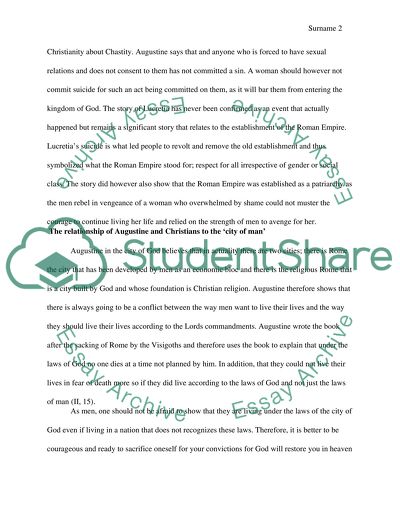Cite this document
(“Essay on Augustine's City of God Example | Topics and Well Written Essays - 1250 words”, n.d.)
Essay on Augustine's City of God Example | Topics and Well Written Essays - 1250 words. Retrieved from https://studentshare.org/history/1491640-essay-on-augustineyies-city-of-god
Essay on Augustine's City of God Example | Topics and Well Written Essays - 1250 words. Retrieved from https://studentshare.org/history/1491640-essay-on-augustineyies-city-of-god
(Essay on Augustine'S City of God Example | Topics and Well Written Essays - 1250 Words)
Essay on Augustine'S City of God Example | Topics and Well Written Essays - 1250 Words. https://studentshare.org/history/1491640-essay-on-augustineyies-city-of-god.
Essay on Augustine'S City of God Example | Topics and Well Written Essays - 1250 Words. https://studentshare.org/history/1491640-essay-on-augustineyies-city-of-god.
“Essay on Augustine'S City of God Example | Topics and Well Written Essays - 1250 Words”, n.d. https://studentshare.org/history/1491640-essay-on-augustineyies-city-of-god.


